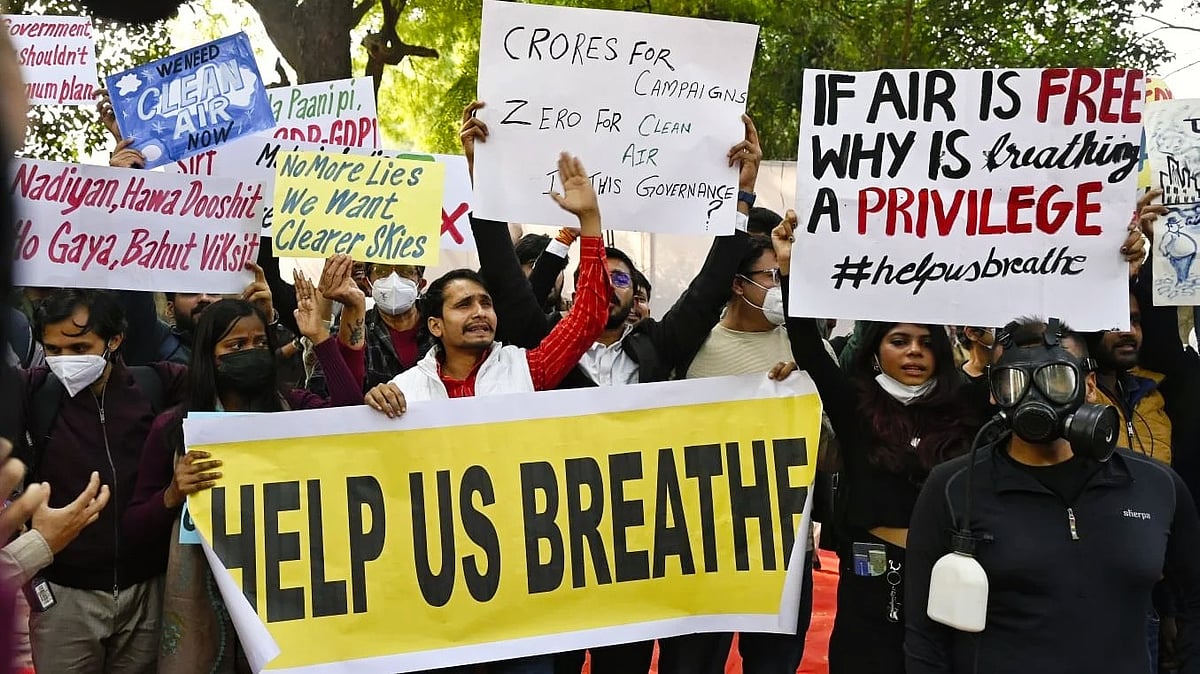Environment
Consider shifting school sports events to 'safer months': SC to CAQM
Bench warns children are being exposed to ‘gas chamber’; seeks monthly monitoring of Delhi-NCR air quality crisis

The Supreme Court on Wednesday asked the CAQM (Commission for Air Quality Management) to examine whether open-air sports competitions for schoolchildren in Delhi-NCR can be postponed to “safer months”, keeping in view the hazardous pollution levels in November and December.
A bench of Chief Justice of India B.R. Gavai and Justice K. Vinod Chandran said the worsening air quality demands a pro-active and continuous response rather than reactive measures triggered only when the situation reaches emergency levels.
The direction came after senior advocate Aprajita Singh, appearing as amicus curiae, told the court that while adults are sitting indoors with purifiers on, children are being made to practise outdoors “in a gas chamber”.
“Children are most vulnerable,” she said, urging the court to intervene.
“We request CAQM to take this into consideration and issue necessary directions to shift such sports competitions to safer months,” the CJI said.
At the outset, additional solicitor-general Aishwarya Bhati informed the court that a high-level meeting chaired by the environment ministry secretary on 19 November discussed both short-term and long-term measures. Singh, however, pointed out that even though policies exist on paper, state pollution control boards lack the staff strength to enforce them.
Published: undefined
The bench said the main air-pollution matter will now be listed monthly to ensure consistent monitoring of implementation. It also permitted the CAQM and CPCB (Central Pollution Control Board) to impose tougher curbs under the GRAP (Graded Response Action Plan) as the situation demands.
Addressing concerns about construction workers losing livelihoods owing to GRAP restrictions, the bench asked Delhi, Uttar Pradesh, Haryana and Rajasthan to obtain instructions on paying subsistence allowances to affected labourers and report back at the next hearing.
On stubble burning, the court reiterated that Punjab and Haryana must strictly follow CAQM directives. “If the CAQM’s suggestions are implemented, stubble burning can be adequately tackled,” the bench observed, directing both states to hold a joint meeting and ensure compliance.
Under GRAP, curbs escalate with the AQI (Air Quality Index): 201–300 triggers GRAP-I, 301–400 GRAP-II, 401–450 GRAP-III, and above 451 GRAP-IV. Despite a decline in recorded farm fires in Punjab this year, the court noted that Delhi-NCR’s air quality has not improved proportionately.
The case will be monitored again at the next monthly hearing.
With PTI inputs
Published: undefined
Follow us on: Facebook, Twitter, Google News, Instagram
Join our official telegram channel (@nationalherald) and stay updated with the latest headlines
Published: undefined